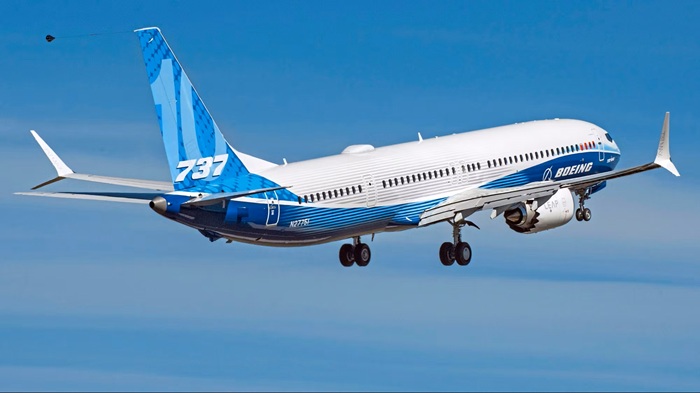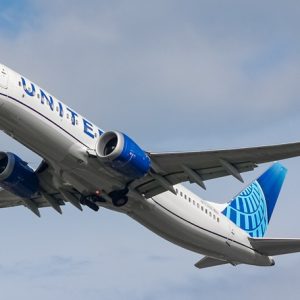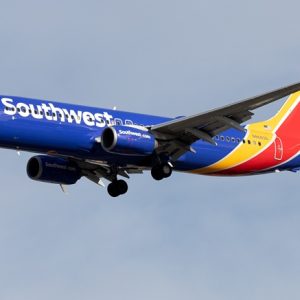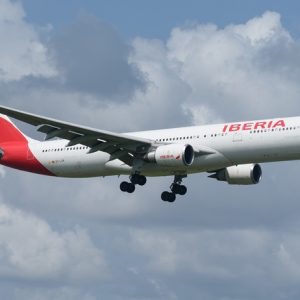
Boeing is nearing the end of its merger with Spirit Aerosystems, but one of the many final details that the deal is waiting on is final approval from the regulatory bodies of the European Union (EU). Spirit is the single largest independent aerostructures maker in the world and, as such, is a key supplier to Airbus as well as Boeing.
The decision to acquire Spirit in an all-stock transaction worth nearly $5 billion came after a door plug was explosively ejected in mid-air on an Alaska Airlines flight in 2024. Spirit’s assembly line was found responsible for the failed door plug which further tarnished the 737 MAX family’s quality and safety image.
The issues with 737 MAX production, including two fatal crashes, has demanded an increased level of control over its supply chain to prevent breakdowns in quality.
Spirit was originally divested from Boeing in 2005 as part of a restructuring plan to streamline Boeing’s core business. The issue for the EU is not related to any of these aspects, however, and focuses on the business side of the merger. If the EU determines that no anti-competitive practices may affect Airbus’ business, then it will be approved.
Spirit Aerosystems: A Divided House
Spirit has made over 10,000 ship sets for the Boeing 737 aircraft family that include fuselage, pylon, wing leading edges, thrust reverser and engine nacelle. Spirit’s plants currently manufacture about 70% of the total components that go into a 737.
Since 2016, Spirit has also manufactured the parts for the maritime patrol variant of 737, the P-8A Posiedon, flown by the US Navy and other international armed forces.
Spirit designed and built the pylon for the Airbus A220 small commercial jet and makes many of its major parts. The volume of aerostructures that Spirit makes for the A220 includes the strut-to-wing hardware, aft fairing package, mid-fuselage and Advanced composite wings.
The Belfast site is responsible for the design and manufacture of the wings for the A220 family of aircraft including control surfaces and assembly.
Spirit builds the wing leading and trailing edge elements of all the A320 family of aircraft at the company’s plant in Prestwick, Scotland. Prestwick also builds wing components (droop slats) for the A380 Superjumbo. Spirit also manufactures A350XWB central section panels that are incorporated into the fuselage, wing front spar and fixed leading edges in France.
The impact that the Boeing merger has on this Airbus massive supply chain apparatus must be fully evaluated by the EU’s governing authority.
EU Rules: What Are The Hang Ups?
The EU’s merger review focuses on one aspect alone, that is fair business practices. The first and foremost point is ensuring that Airbus will not be cut off from its parts supply. The second concern is that its parts supply will be stable and not choked by the reintegration of Boeing and Spirit.
This issue is not likely to present an obstacle as the merger as shown by the approval from the United Kingdom.
Boeing Will Acquire: |
|---|
Spirit’s headquarters in Wichita, Kansas, that produces the fuselage for the Boeing 737, as well as the forward fuselage for the 787 Dreamliner. |
A former Boeing plant in Tulsa, Oklahoma, that manufactures parts for the 787 and other aircraft. |
Dallas, Texas, facility for maintenance, repair, and overhaul (MRO) of aerostructures. |
Boeing will take control of Spirit’s Belfast operations that are unrelated to Airbus programs. Following the failure to find a third-party buyer. |
A small portion of the Prestwick plant, with 50 employees that does not support Airbus programs. |
The more complex issues that are being reviewed come down to the vertical integration that Boeing is creating by bringing Spirit back into the fold. The EU must confirm that it does not give Boeing an unfair advantage on the market, which is a basic anti-monopoly policy that the UK and the US also prohibit.
The next point is to evaluate the breakdown of the business divestment by Spirit under the merger terms to ensure that Airbus is being allocated a proper share to maintain a competitive market between the two industrial giants.
Airbus Will Acquire The Following Sites: |
The Kinston, North Carolina, A350 fuselage sections site in the US. |
The St. Nazaire, France A350 fuselage sections site. |
The Casablanca, Morocco, A321 and A220 components site. |
The production of A220 pylons in Wichita, Kansas, US. |
The production of A220 wings in Belfast, Northern Ireland |
The production of A220 mid-fuselage in Belfast, Northern Ireland |
Wing components for A320 and A350 in Prestwick, Scotland |
Other Assets Sold By Spirit AeroSystems: |
The Subang, Malaysia site is intended for sale to a third-party owner. |
There is a fairly clear division following a simple breakdown of assets based on the planemaker that each facility supplies. There are a few points that present concerns regarding intellectual property due to overlap.
Airbus will acquire a smaller portion of the Wichita operations related to its own programs. Boeing will acquire the shared assets in Scotland and the production of fuselage for Bombardier business jets. This is another area where the EU must investigate to ensure that there is no opportunity for a leak or theft of trade secrets.
UK & US Approval: How’s It Going?
The UK’s governing authority approved the merger this past month in August 2025. Like the EU, the United States has not yet approved it and the decision is expected to be announced in January of next year.
According to Guru Focus, the EU is anticipated to be faster with its review findings released at the end of this month, by September 30, 2025. Internally, the shareholders of Spirit Aerosystems approved the guidelines of the Boeing merger and Airbus divestiture in April 2025.
The deal was originally announced in July 2024 as a part of the increased scrutiny of the 737 MAX production that had steadily grown over its years of struggle due to the tragic crashes of Lion Air and Ethiopian Airlines 737 MAX 8 jets in 2019.
The move is expected to address quality concerns like the door plug failure in January 2024 on Alaska Airlines, which is keeping with the Federal Aviation Administration’s (FAA) expectations.
The Airbus assets that fall under the umbrella of Spirit Aerosystems have reportedly been operating at a loss under Spirit’s stewardship, as Seeking Alpha describes. Eliminating unprofitable product lines for Spirit may be a great benefit to the company and its new owner, Boeing.
That also raises a question for review alongside the other items that the EU is reviewing, all of which will be independently evaluated by American counterparts before the final sign-off.
The Duopoly Of The US And EU
The number of commercial aircraft makers in the world is a very short list. Even though there are more manufacturers out there, they have virtually zero market impact. These builders include China’s COMAC, Brazil’s Embraer, Mitsubishi Heavy Industries of Japan, and Bombardier of Canada.
Russia has its own United Aircraft Corporation (UAC) and legacy builders like Antonov, Sukhoi, and Yakovlev contribute to the domestic commercial plane industry as well. Despite all of that, very few planes in service above the regional jet class are not Boeing or Airbus platforms.
The sanctions against Russia and the battle of trade tariffs with China have seen a growing investment in UAC and COMAC by their home nations, but neither has yielded a replacement commercial jet that can substitute for the planes that their Western counterparts make.
These home-grown aerospace manufacturers have large operations and ambitious projects but largely depend on Western-sourced components even in their own airframes.
Russia’s aerospace industry has been brought to a grinding halt due to sanctions in response to Vladimir Putin’s decision to invade Ukraine. COMAC, on the other hand, simply cannot compete in quality, cost-effectiveness, or performance with imported aircraft. Airbus and Boeing have even collaborated to lobby against aerospace tariffs as the impact is harmful to both companies.
A Shrinking Market: One Less Independent Builder
Limiting options to consumers like airlines and air cargo operators may give Boeing even greater leverage than it already has over the aerospace market. That could give Boeing free rein to raise its prices, which would increase the cost to customers.
Even though the UK ultimately approved the deal, the Competition and Markets Authority (CMA) was concerned about potential consequences from the merger in the long term. As Flight Global reported, one statement said:
“[The merger] may be expected to result in a substantial lessening of competition within any market or markets in the United Kingdom”.
The merger is a component of a larger trend of aerospace sector consolidation, which may eventually put pressure on smaller suppliers and further reduce competition. The rivalry between Airbus and Boeing is also attributed with resulting in innovation and technological advances.
However, the opposite can be argued as radical new designs are not welcome. Shareholders of the two industry juggernauts prioritize the bottom line above all else.
Time will tell how the newly integrated businesses take shape and what impact it has on the global aviation market. Whatever negative business effects may result, at the least, the safety and quality of the 737 MAX family of jets should be greatly improved.
Hopefully, exciting new ideas like lifting-body passenger planes, or Boom’s quiet supersonic transport (SST), will not be killed in the cradle due to the lack of space in the market for new players.





